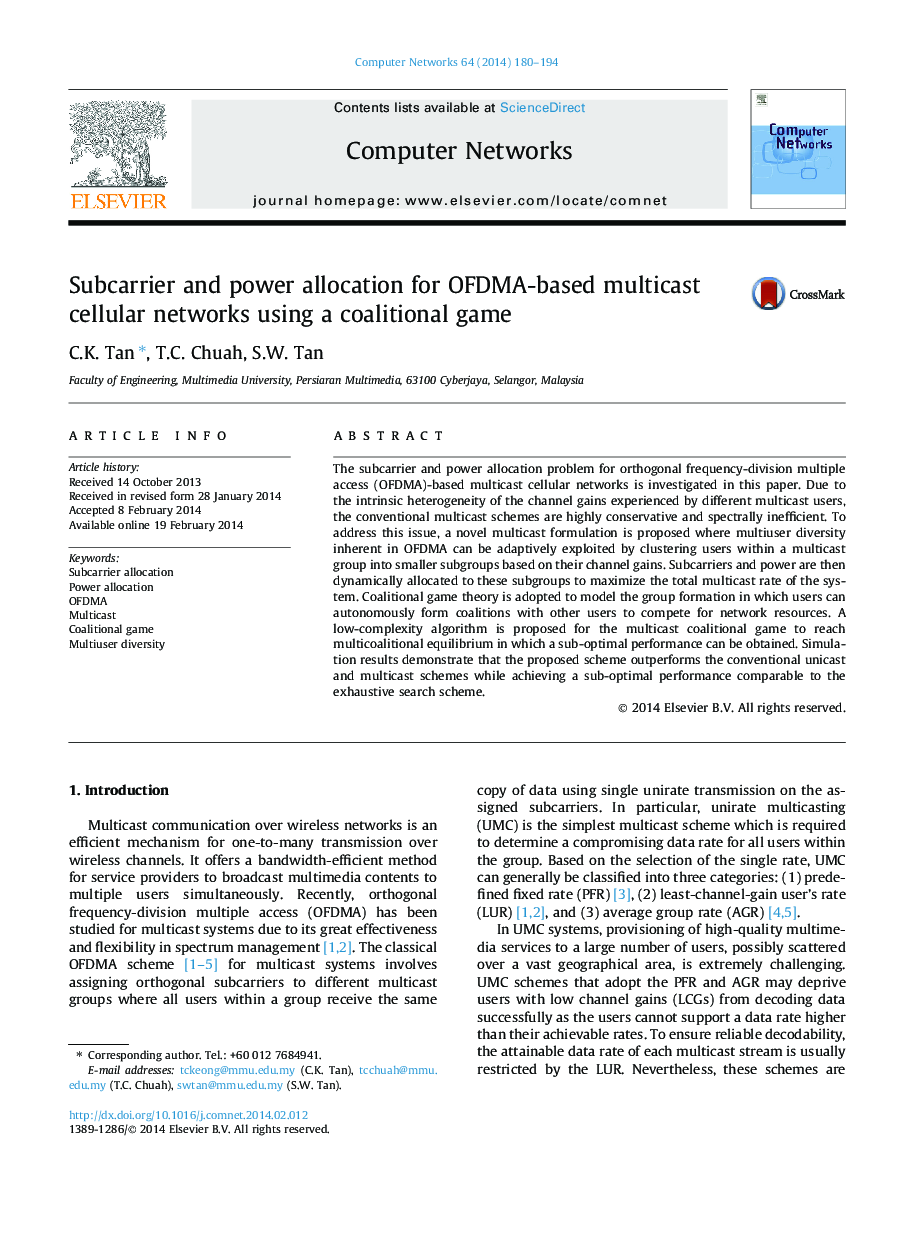| Article ID | Journal | Published Year | Pages | File Type |
|---|---|---|---|---|
| 450792 | Computer Networks | 2014 | 15 Pages |
The subcarrier and power allocation problem for orthogonal frequency-division multiple access (OFDMA)-based multicast cellular networks is investigated in this paper. Due to the intrinsic heterogeneity of the channel gains experienced by different multicast users, the conventional multicast schemes are highly conservative and spectrally inefficient. To address this issue, a novel multicast formulation is proposed where multiuser diversity inherent in OFDMA can be adaptively exploited by clustering users within a multicast group into smaller subgroups based on their channel gains. Subcarriers and power are then dynamically allocated to these subgroups to maximize the total multicast rate of the system. Coalitional game theory is adopted to model the group formation in which users can autonomously form coalitions with other users to compete for network resources. A low-complexity algorithm is proposed for the multicast coalitional game to reach multicoalitional equilibrium in which a sub-optimal performance can be obtained. Simulation results demonstrate that the proposed scheme outperforms the conventional unicast and multicast schemes while achieving a sub-optimal performance comparable to the exhaustive search scheme.
